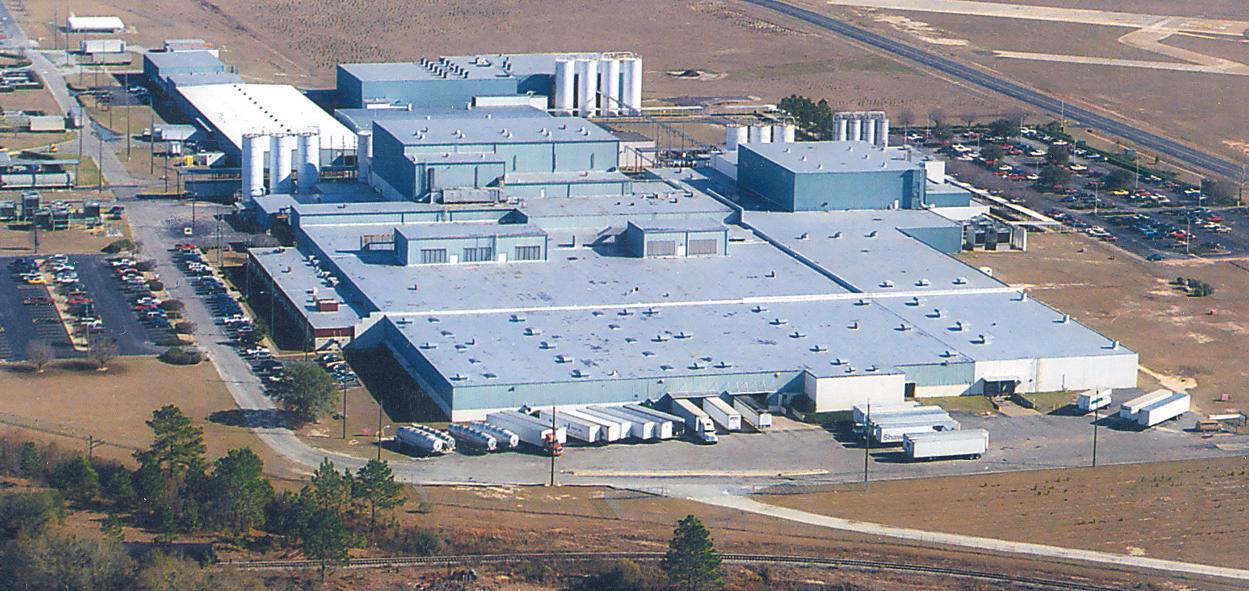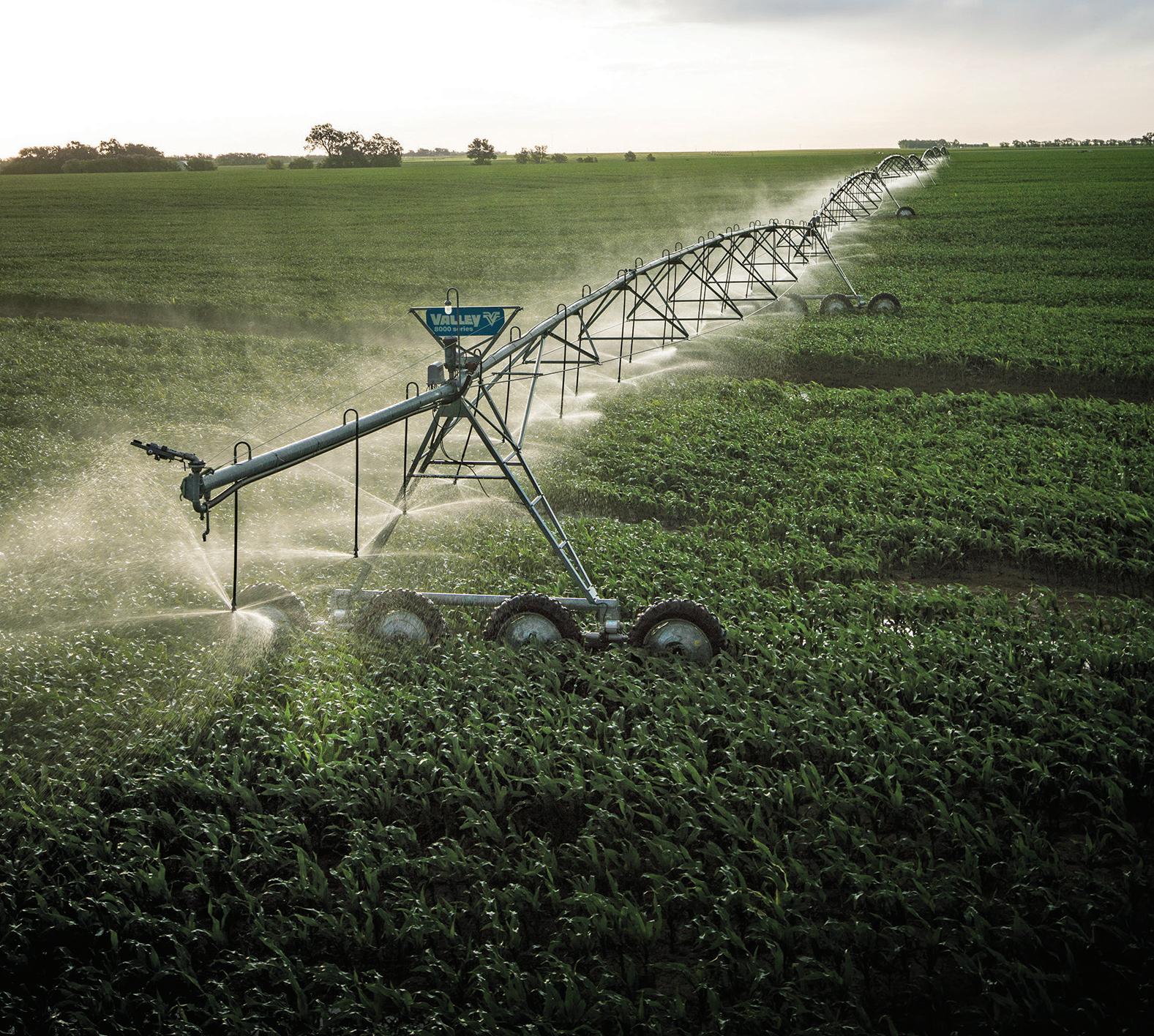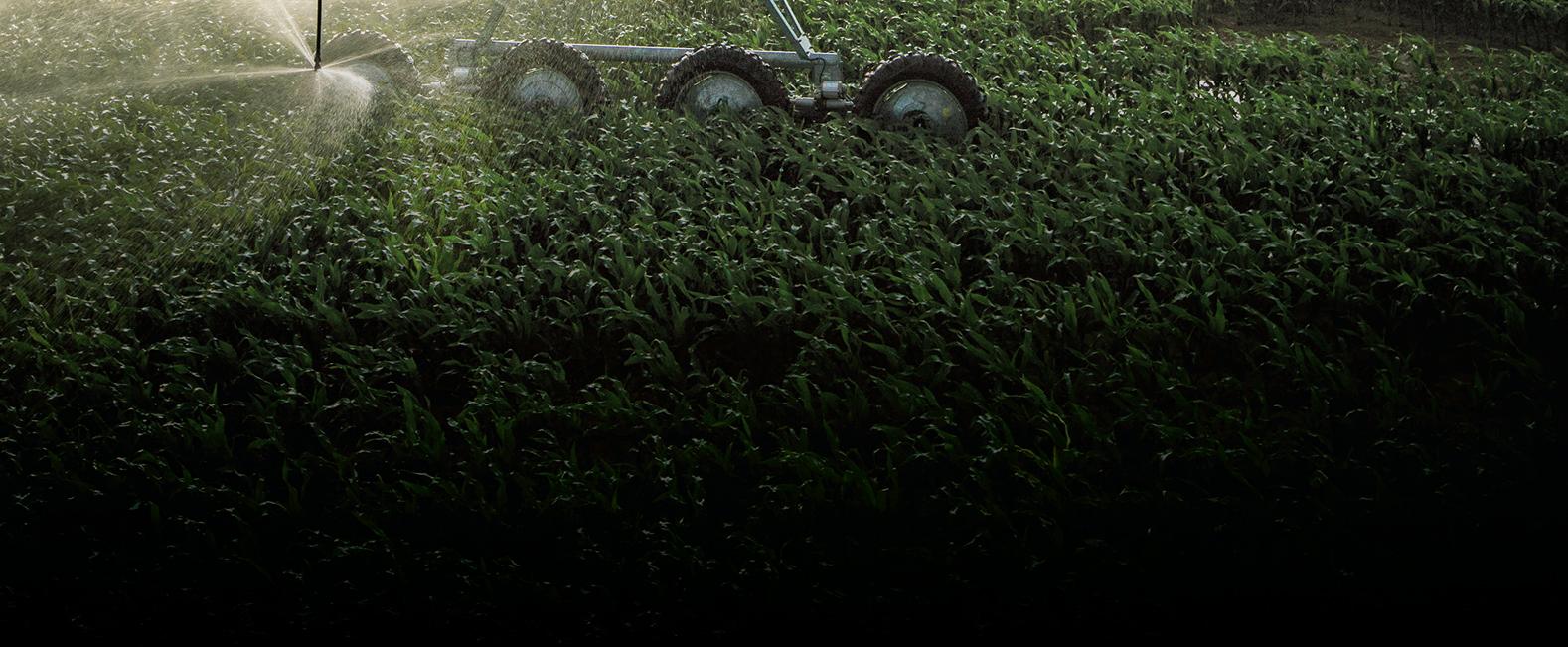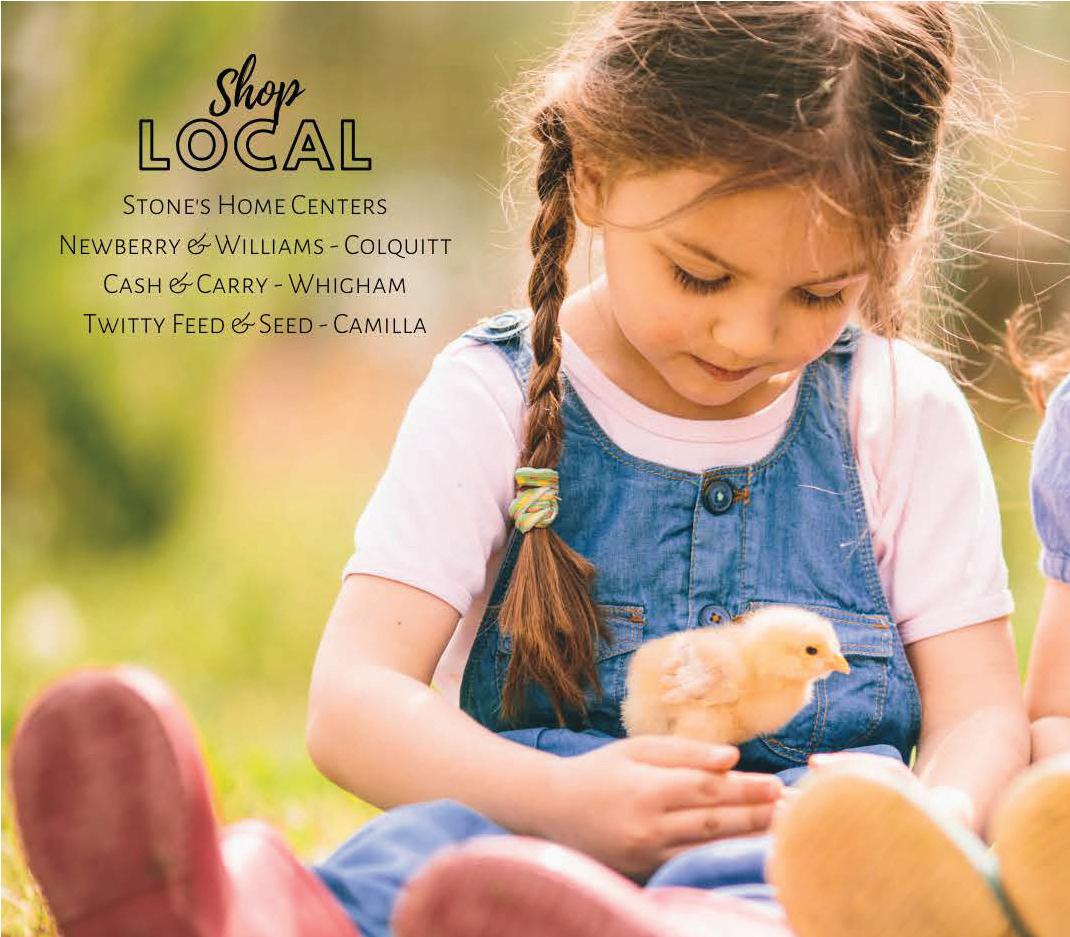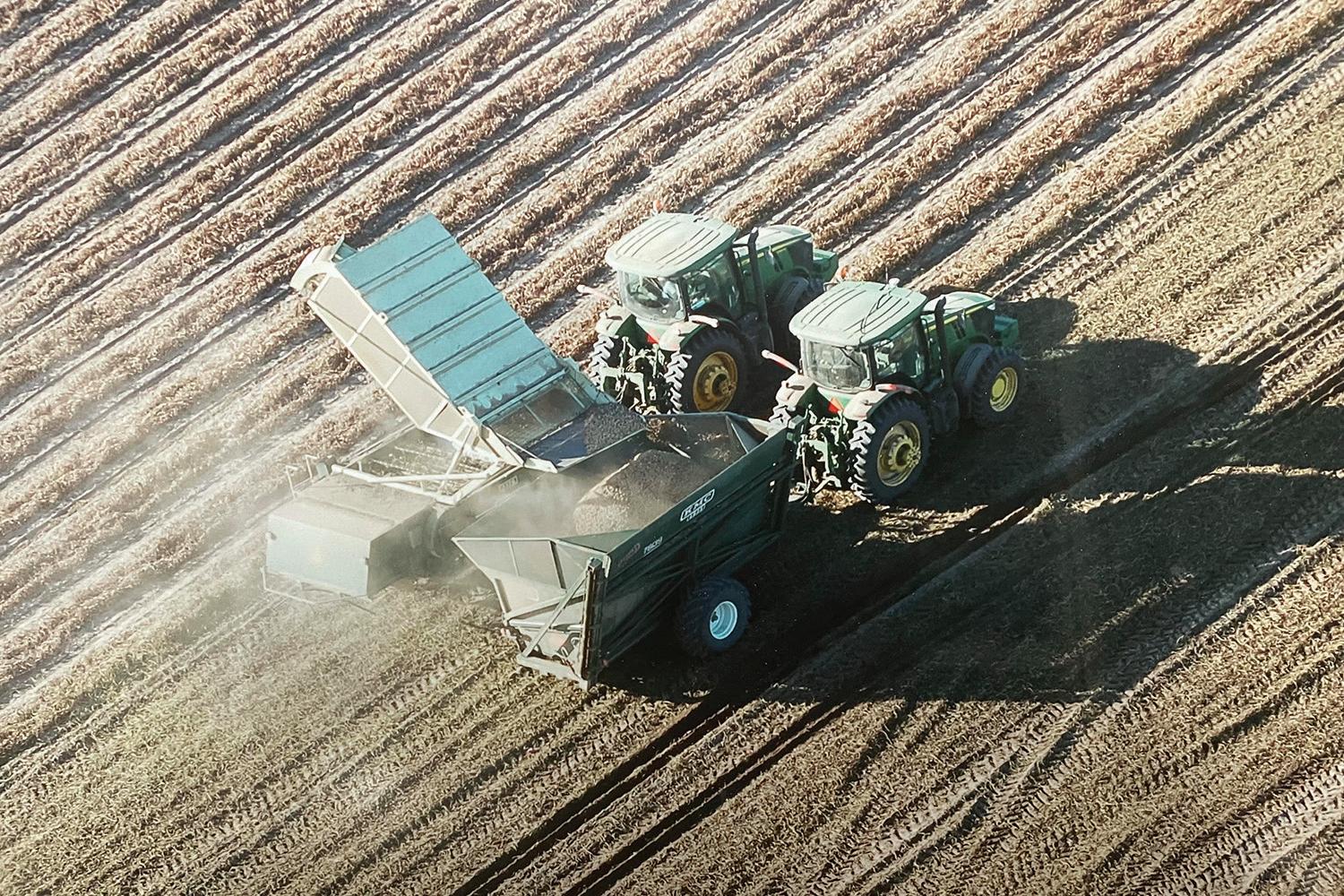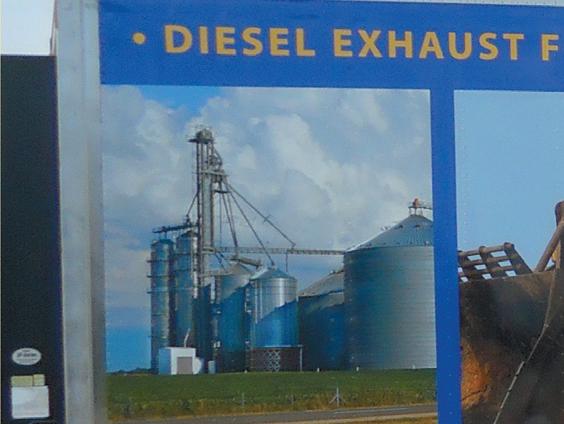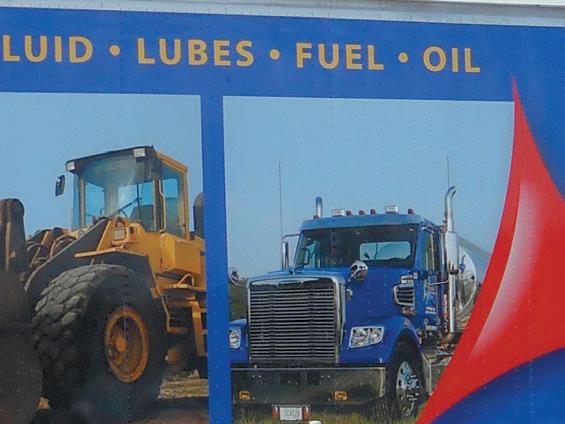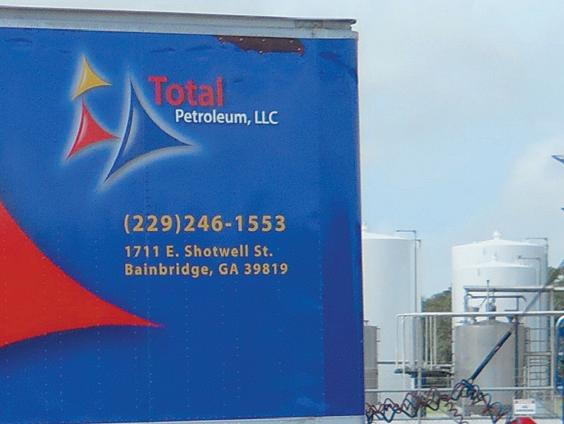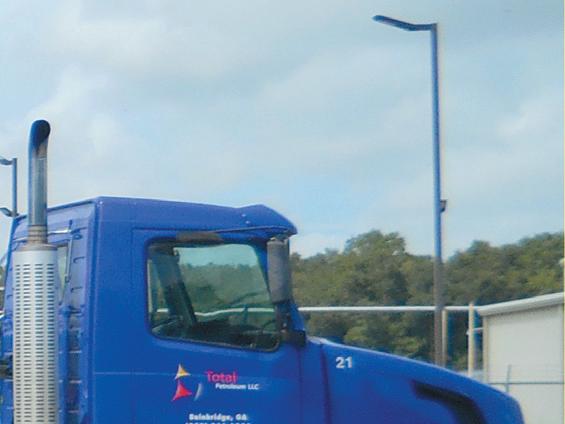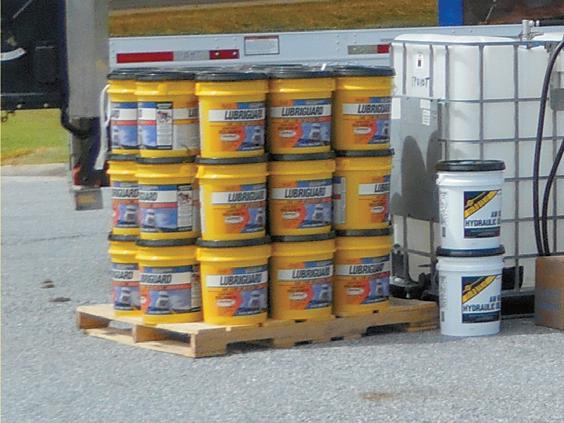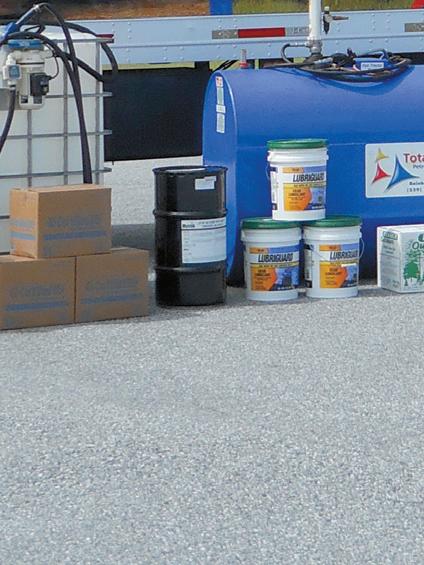DOWN ON THE FARM














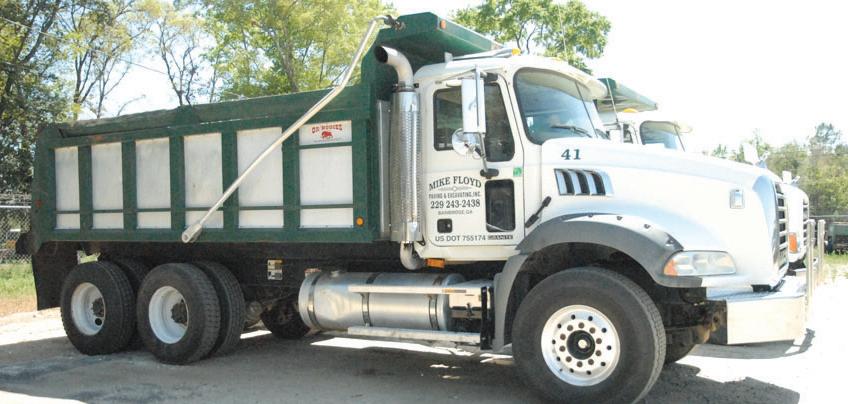




















Bythe end of September 2020, Amazon was boasting a yearly revenue of $96.15 billion— if you think back to that year, this was in the throes of the COVID-19 pandemic and the mass attempts to “flatten the curve.”
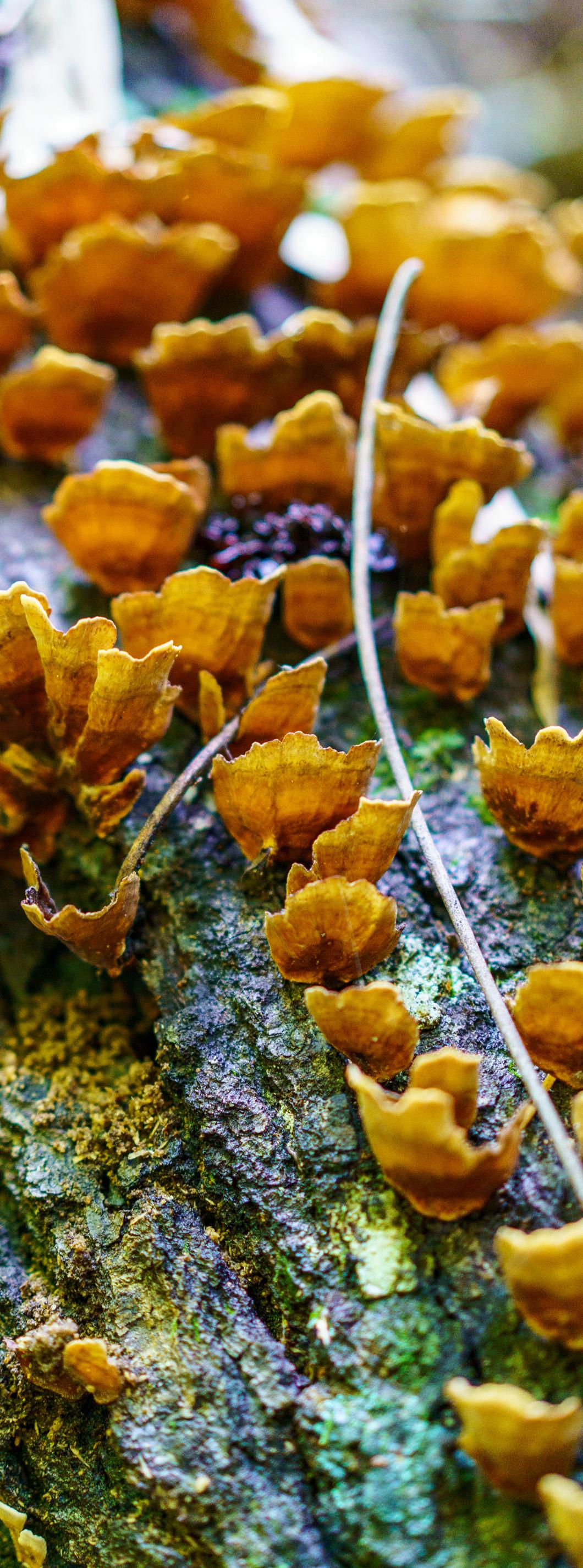
Meanwhile, in small town America, many local businesses saw sales rapidly dwindle away, with some areas seeing business closures of up to 50 percent.
As time went on, however, existing small businesses worked to embrace new strategies, and many opportunists were poised to make a grab for the upward swing of economic recovery, opening new businesses in locations that otherwise may have been financially out of grasp.
Place-based revitalization strategies to leverage the density and proximity of rural commercial corridors have become a focus of many organizations set to change how we not only do business, but connect with one another.
These hyper-local strategies are meant to be holistic, designed not for a singular purpose such as preserving historic buildings or even growing businesses, but to bring to their communities the resources and amenities that national retailers and groceries often cannot.
As we talked about what makes Bainbridge unique, one thing stood out. The rise of the downtown retail district over the last decade has initiated the return of an era long gone. It seems to be weaving the kind of tight knit fibers that bind a community from the ground up. Which is where we looked for this issue of “Down on the Farm”, hoping to tell the story of several producers and retailers who are utilizing a more local strategy to build resilience to their operations.
Farmers have long formed the backbone of all vibrant communities. Many are finding innovative approaches to getting their products into your hands, but its more than just about the bottom line. A return to knowing your farmer creates community dynamics worth preserving, not for the sake of nostalgia, but for the sake of a brighter and more resilient future for all.
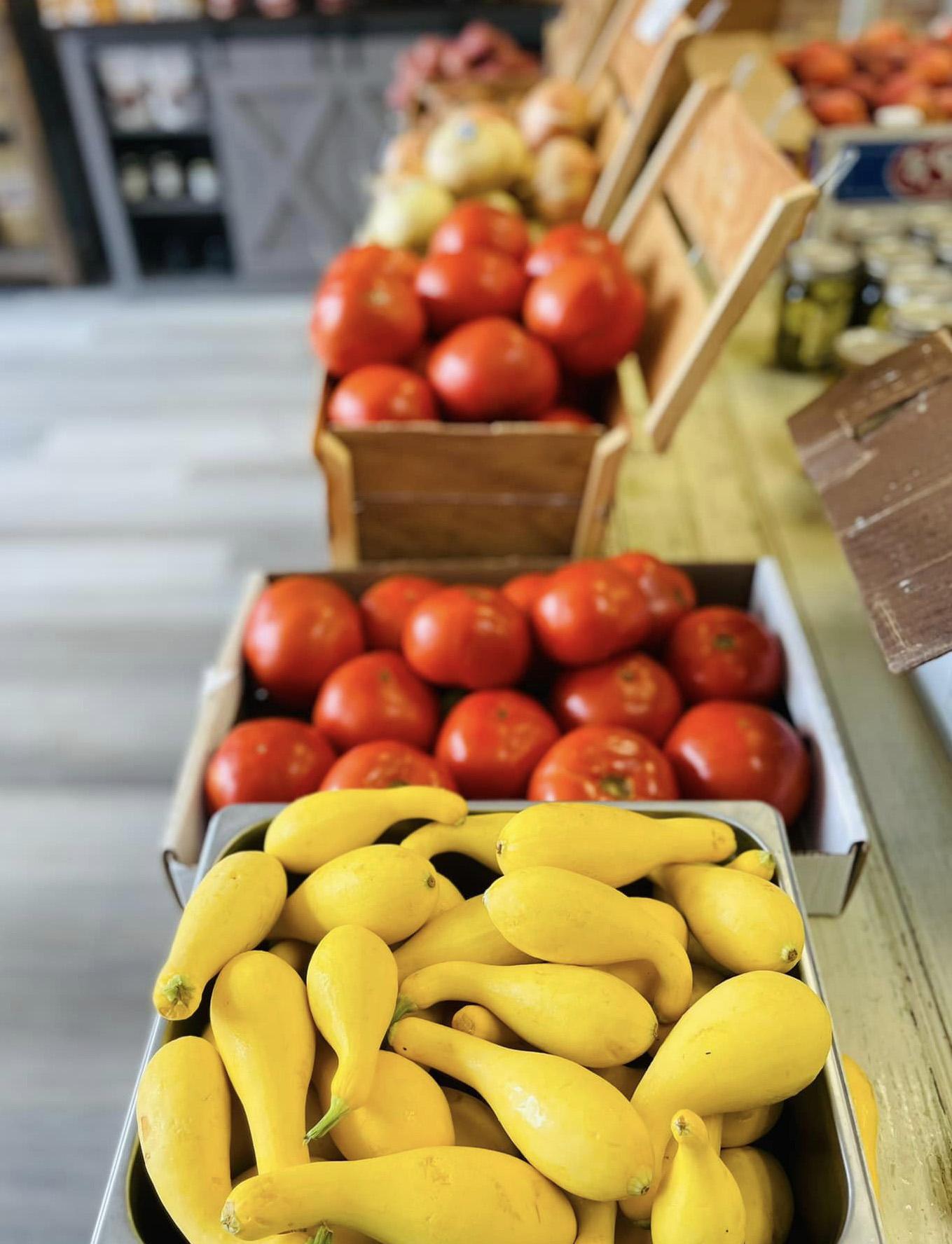
According to data from
the USDA’s National Agricultural Statistics Service (NASS), sales of local edible farm products in 2017 totaled $11.8 billion, or 3 percent of all agricultural sales in 2017, up from $8.7 billion in 2015.
In 2020, and immense strain on supply chains, consumer behavior began to shift accordingly. Direct farm marketers saw an increase of 30 – 50% over 2019. This increase came through more customer visits and an increase in sales per customer. Direct farm marketers worked hard to quickly make significant changes to account for these shifting dynamics.
Pick-your-own operators also experienced an increase in customer activity of 20% or more. The increase in customer activity was so great for some pick-your-own farms, that customers were required to make a picking appointment.
These consumer trends continued across the majority of America, which is around the same time two local entrepreneurs, Kelsey Harrell and Delaney Mueller, made the decision to move from roadside-stand to GBK Produce, a brick-and-mortar store located in downtown Bainbridge. “We knew Bainbridge was ready for
a year-round produce market and specialty grocery store,” Harrel told The Post-Searchlight. “The growth of downtown Bainbridge in the years leading up to 2021 led us to make the decision to open up a market, and we knew that downtown was the place to do it.”
By September of that same year, they were open for business. The opening process was arduous, but less than two years on and they’re already seeing the fruits of their labors. Harrell and Mueller carefully hand select every product they carry. KGD produce maintains stringent guidelines when it’s selecting a product line to carry.
“An item either has to be a Georgia Grown item or regionally local for us to entertain putting it in the store. The item cannot be sold at another location, and if it is, it has to be popular enough that we will still sell it at KGD. We must try the product first and make sure that we love it, and we also need to know why we love it in order to share that with customers,” Harrell said. That’s a lot of pressure for producers to fine tune their offerings to secure space with a local retailer, but many of KBG’s suppliers are a natural fit for the specialty grocery store, with their
passion evident in the product itself. are so passionate about what they produce. “The closer the vendor is, the better,” Harrell said. “We buy from all over the state, but we enjoy working with small businesses close to Bainbridge the best. They also have to be good communicators since most of the communication is done via email, text, or by phone. Lastly, their products must speak for themselves. Our best-selling products do not rely on Delaney and me to explain them,” she continued.
Relying on the middleman may not be the best solution for all farms, but Grady Ranch owner, Bobby Holden, said “There’s more to consider than just the financial, there’s something intangible about the marketing and product awareness a business like KBG Produce brings to a business like ours.”
With no such thing as too close for comfort in the food industry, Harrell and Mueller are always on the hunt for wholesalers close by. “People go crazy for local items. They’re more willing to spend additional money on something knowing that they are keeping their money in Georgia by supporting their local economy.
Nexttime you grab a quick bite from your fast food
joint of choice, don’t forget the farmer that ultimately made that meal possible.
While a cook may have defrosted or heated the final product up for you, it’s always a farmer providing
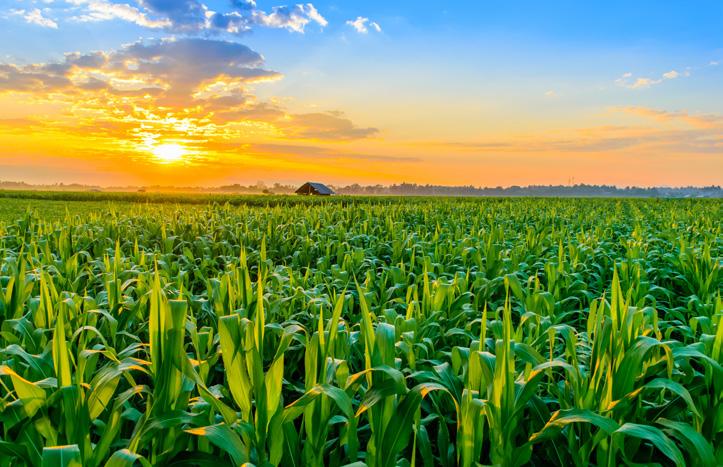
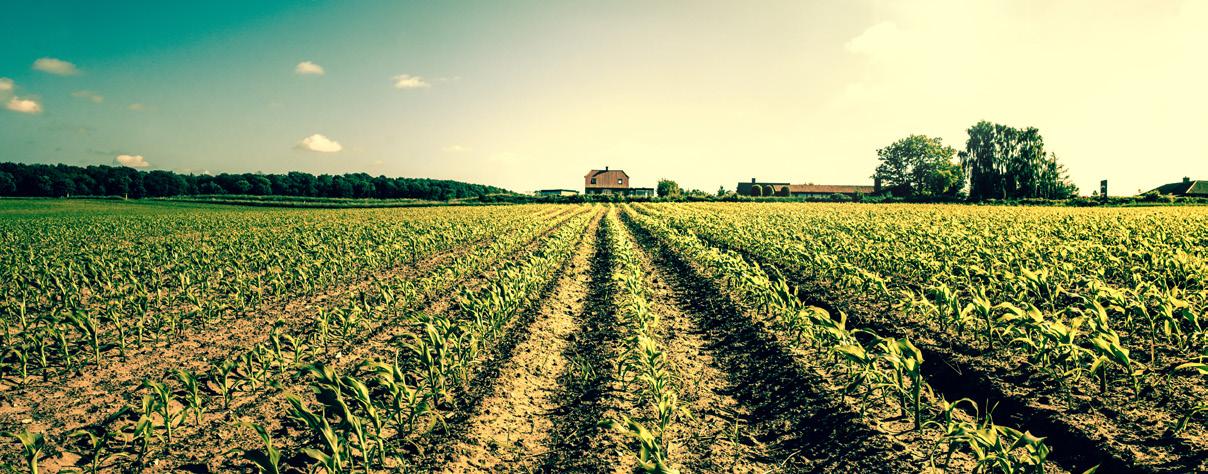
the necessary ingredients.
Farmers like Hank Suber, who runs SK Farms, right on the Florida Line.
If you’ve ever shopped at KGD Produce, you’ve probably seen some of Suber’s tomatoes there. But as a matter of fact, KGD is really his only local distrib-
utor; the rest of his crops, which range from tomatoes to satsumas, are distributed to stores and restaurants around the nation.
Suber has been farming his whole life, and started his current operation at SK Farms in 1989. “My dad got in it with another fel-
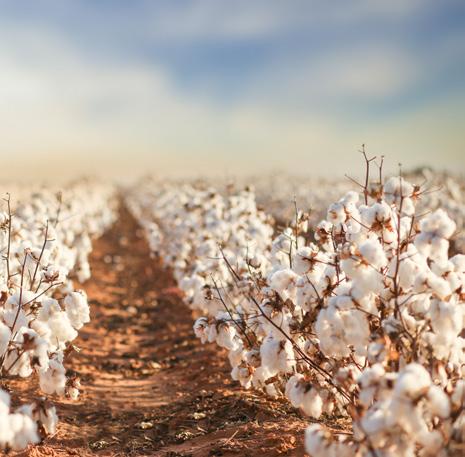
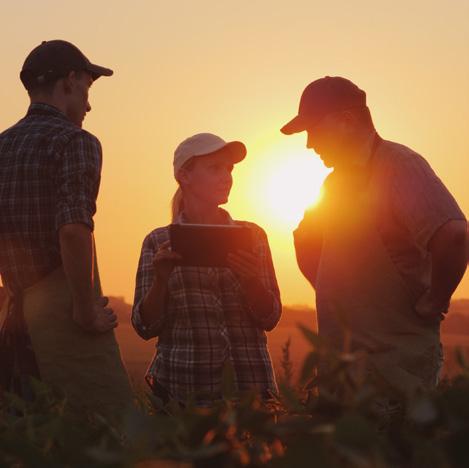
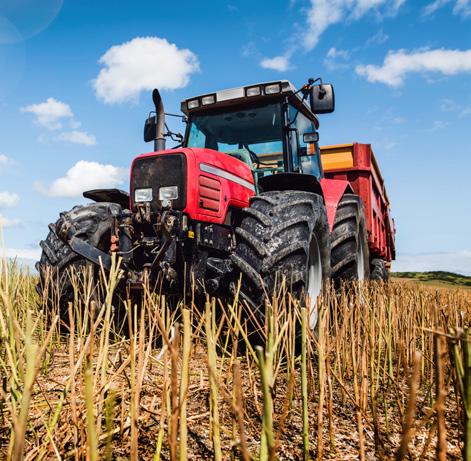
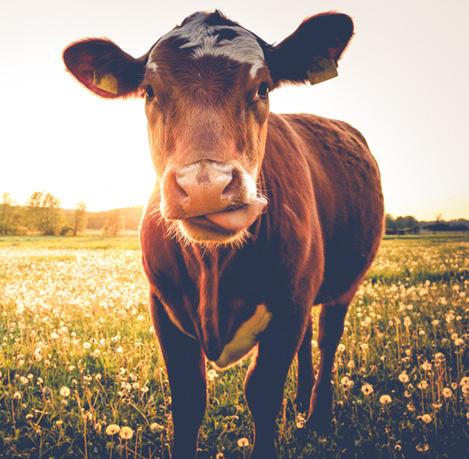
la probably 42 years ago, and we’ve been doing it ever since,” Suber recalled how his father first started tomato farming. Originally his father was a tobacco farmer, before tomatoes supplanted tobacco as the best crop in the area. Suber is joined on the farm by his son Trey, and they now grow several varieties of tomatoes, mainly Quincy, as well as Grand Marshall, and Red Snapper. “We do 150 acres twice a year, so it’d be roughly 300 or more per year,” he said. Factoring in the other crops, Suber farms roughly 3,000 acres total, owning some and leasing the rest.
Suber has been supplying to KGD since it was just a produce stand; meanwhile, the rest of his tomatoes go through a packing house in Quincy, Florida, Gadsden Tomato Company. From there, they go across the country, with a large portion heading to the Northeast. “New York and New Jersey get a lot,” he said. “Subway gets them, Burger King gets them, a lot of different buyers get them.” The rest of his products go to various locations, both in the county and around the country. “Peanuts go to Barber Fertilizer, soy beans go to Glenn Heard, corn goes to Glenn Heard Farms.”
“We’re a real diversified farm, compared to a lot of farms,” Suber continued. Besides tomatoes, they grow oranges, satsumas, lemons, limes, chestnuts, corn, soy beans, cotton and peanuts,
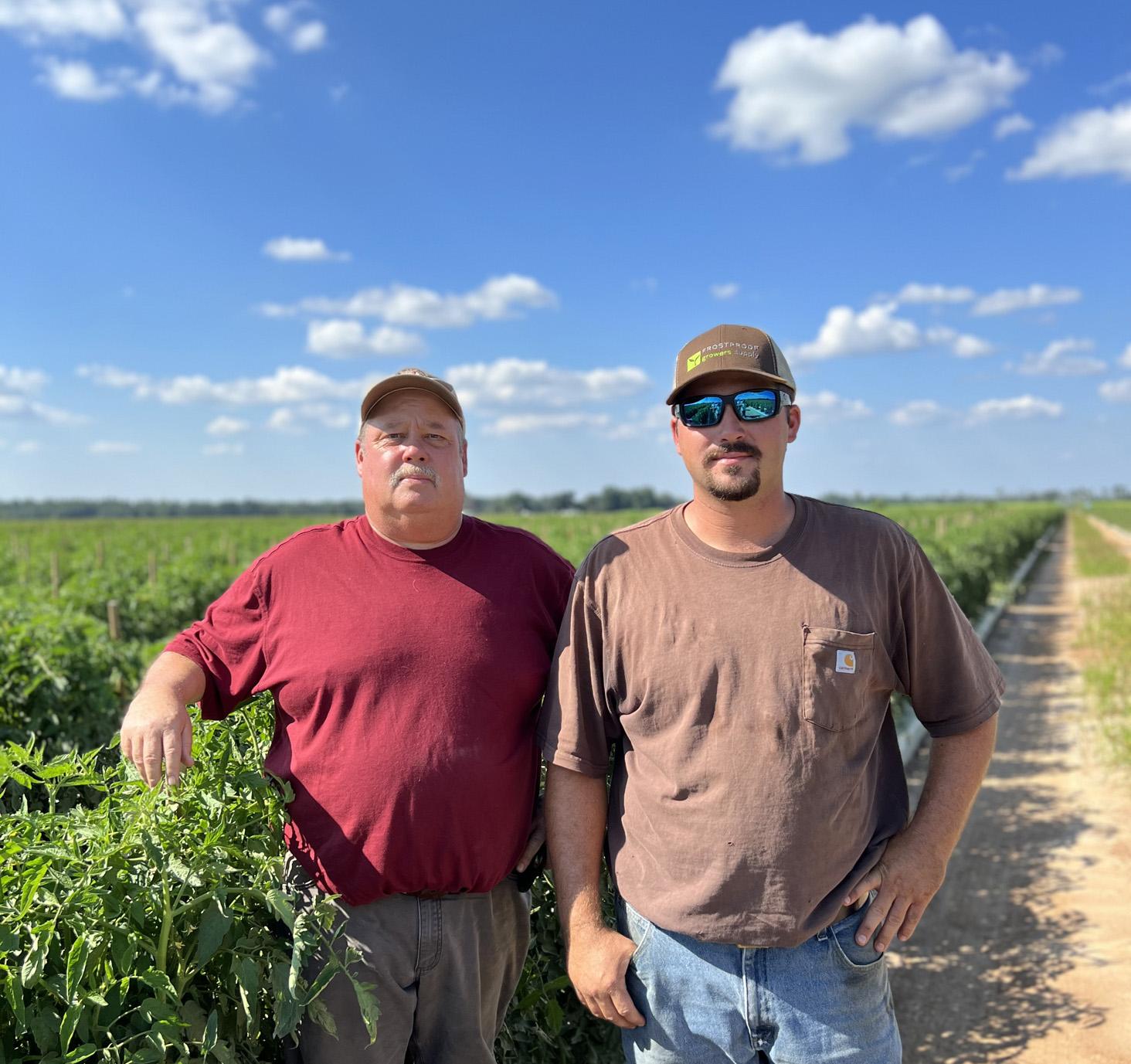
in addition to raising cows and cultivating turf grass. Part of the reason for the diversification was for security. “We diversified in case something doesn’t make money, the other one will.”
While supply chain issues have plagued parts of the country and left customers wanting for certain products, it hasn’t had that big of an impact on Suber’s business.; despite the occasional issue with getting trucks to haul the produce, he said there hadn’t been many issues of the sort. As for how the market itself has been, he said, “It has good years
and bad years, sometimes more bad than good!” He continued about the current conditions, saying, “I don’t know, we’re not picking right now, but I think it’s a halfway good market.”
According to Suber, the biggest competitor with SK Farms is currently foreign production. “Mexico is what kills us. All the tomatoes and vegetables that they send over, and they send it so cheap,” he said. “It drops the price here. Their labor’s so cheap, our labor’s so high because we have to get these H-2As.” H-2A refers to tempo-
rary, non-immigrant foreign workers. “You have to pay to house them, to feed them, pay for their transportation,” Trey explained.
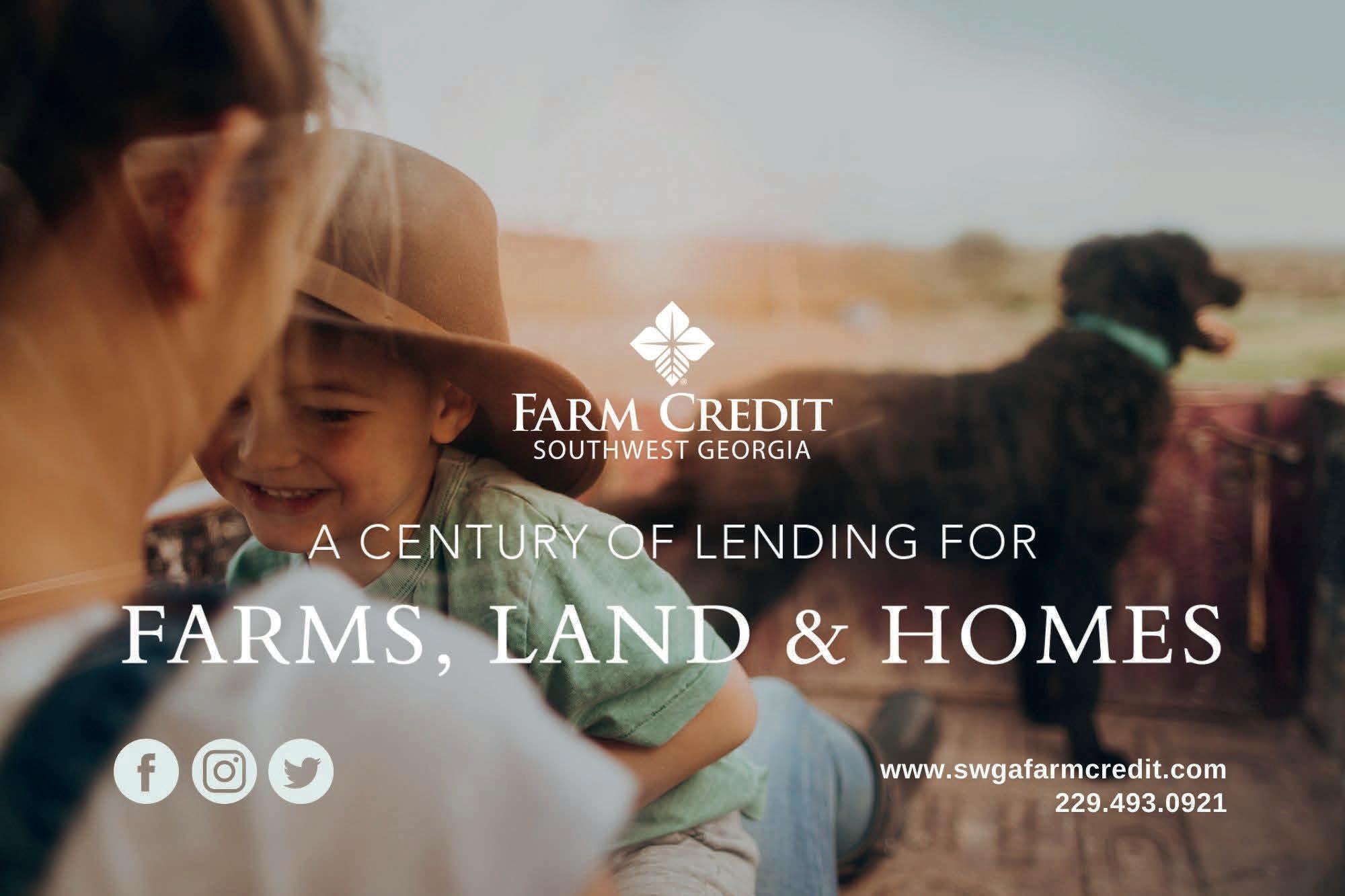
Disease is also a factor they’ve had to contend with. While cotton farmers have had to deal with boll rot and peanut farmers have had to deal with white mold, courtesy of the rainy weather, pith necrosis is a concern for Suber’s tomato crop.
Despite the many ups and downs that come with such a large operation, both father and son remain optimistic. “Hard work pays off,” Trey said. “The farm’s been good to us so far,” Suber concluded. So the next time you think to say a blessing over your burger or sub, don’t forget to say thanks to farmers like these that provided it
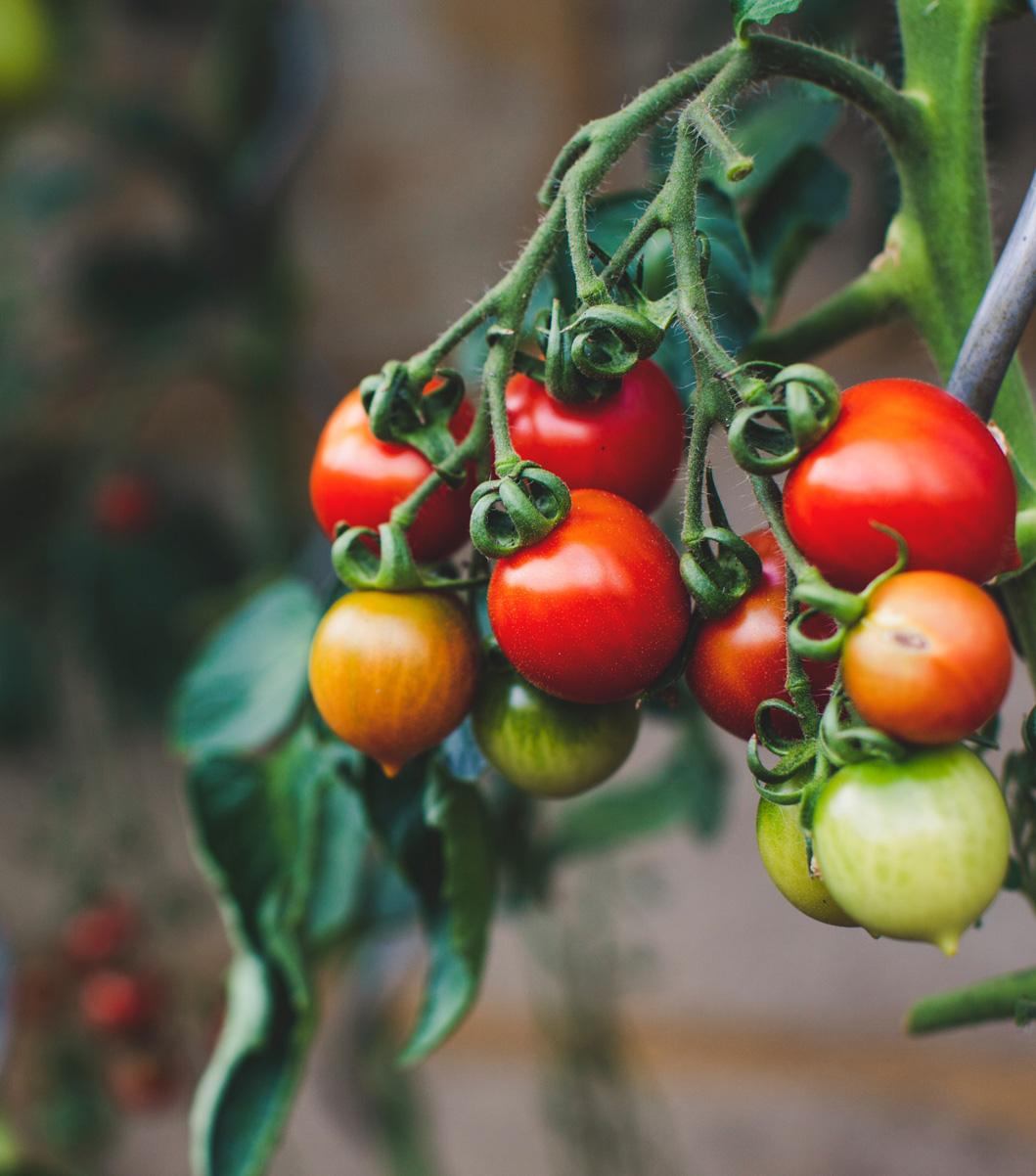
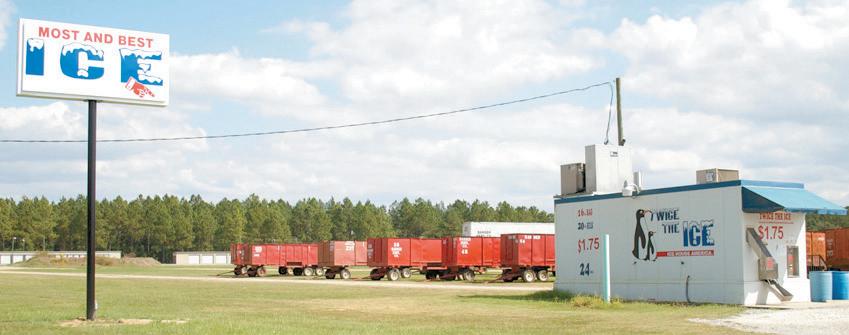

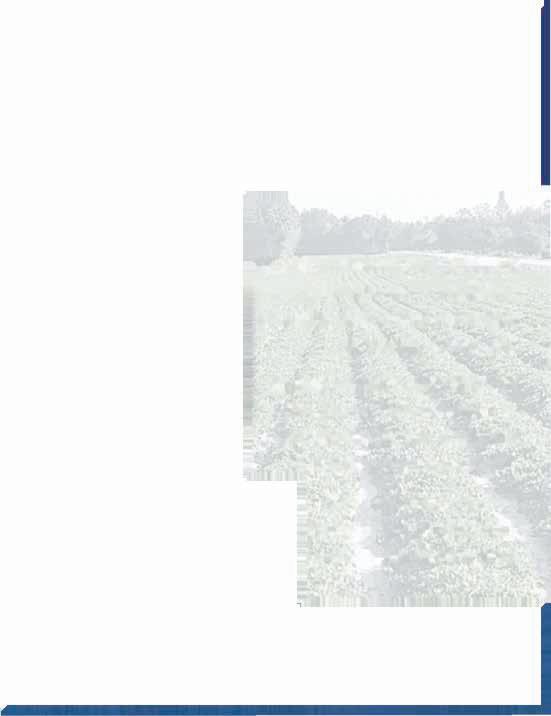
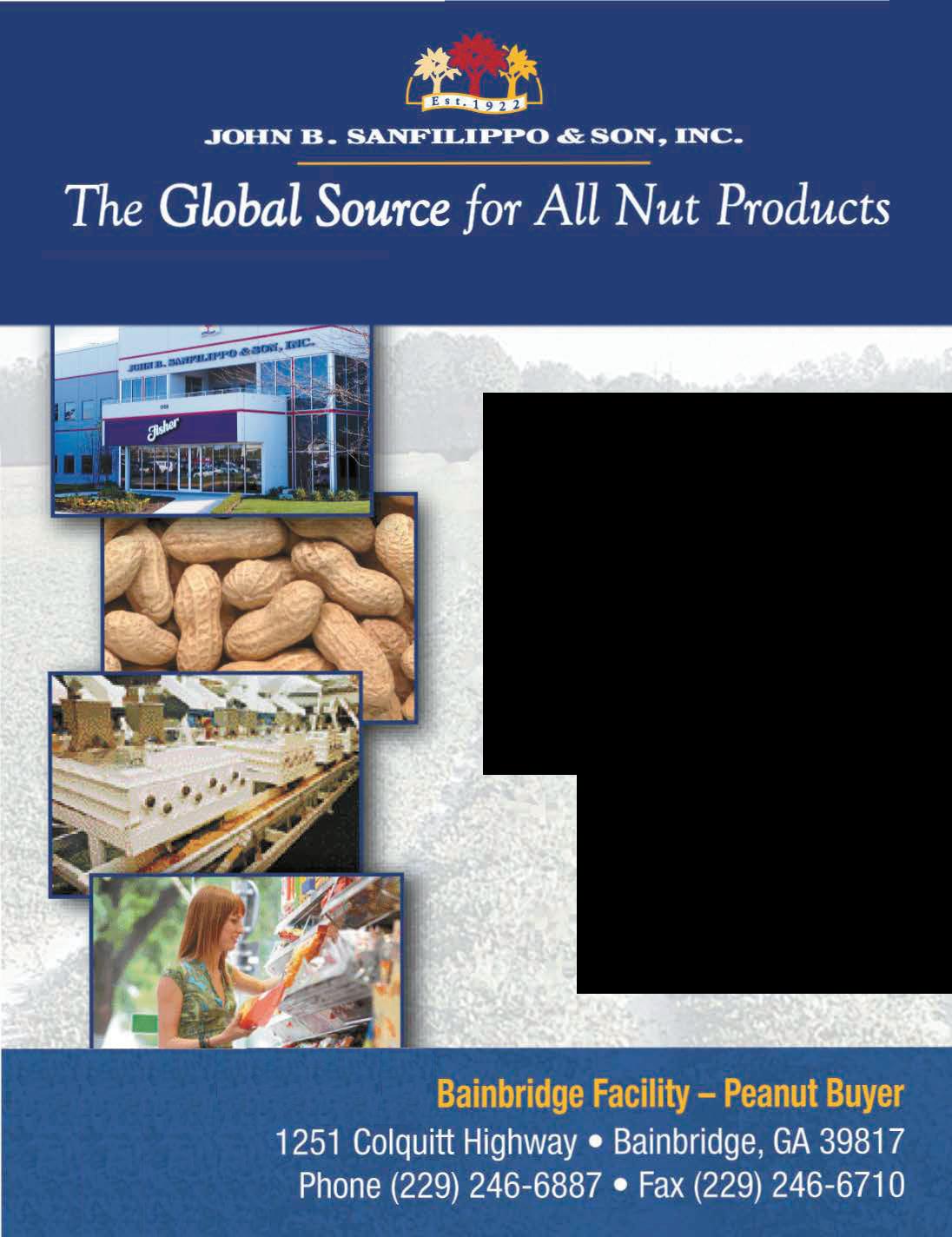
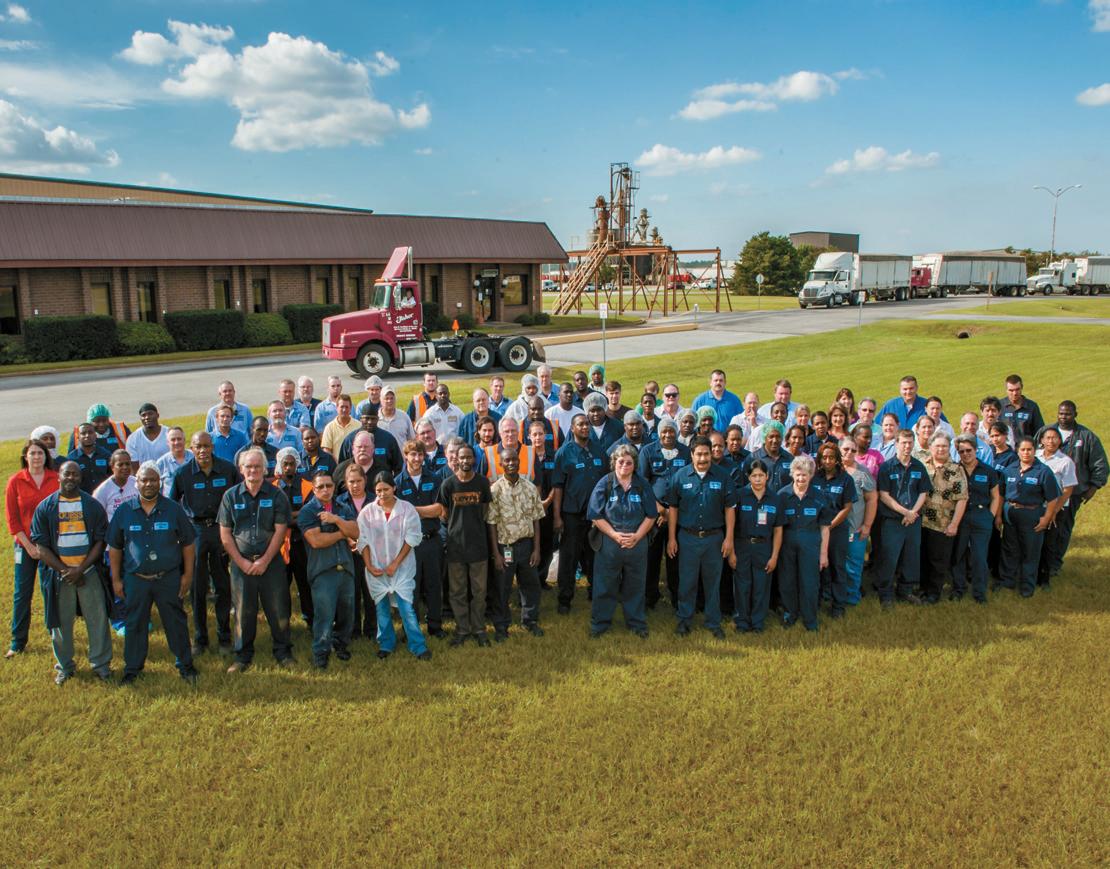


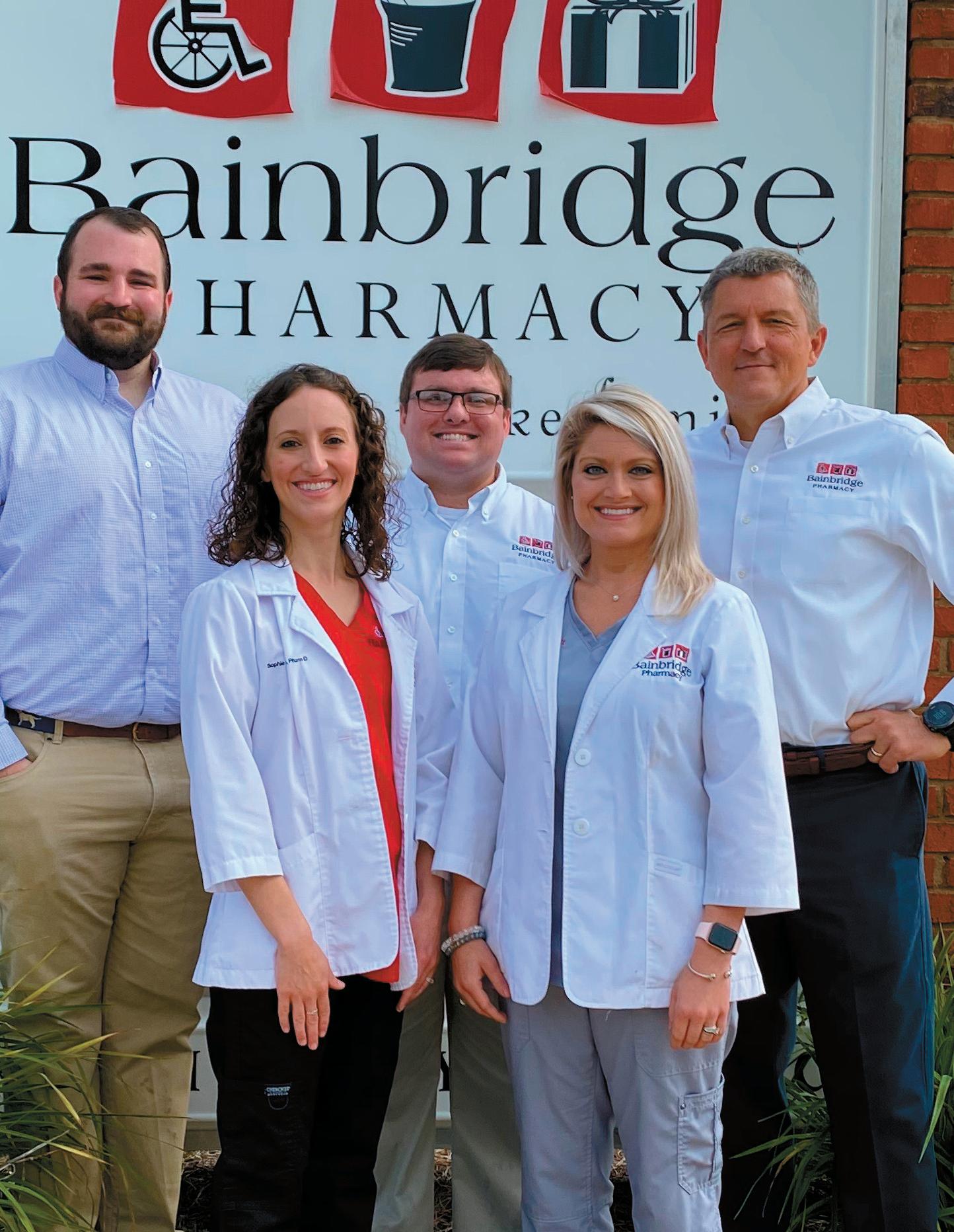
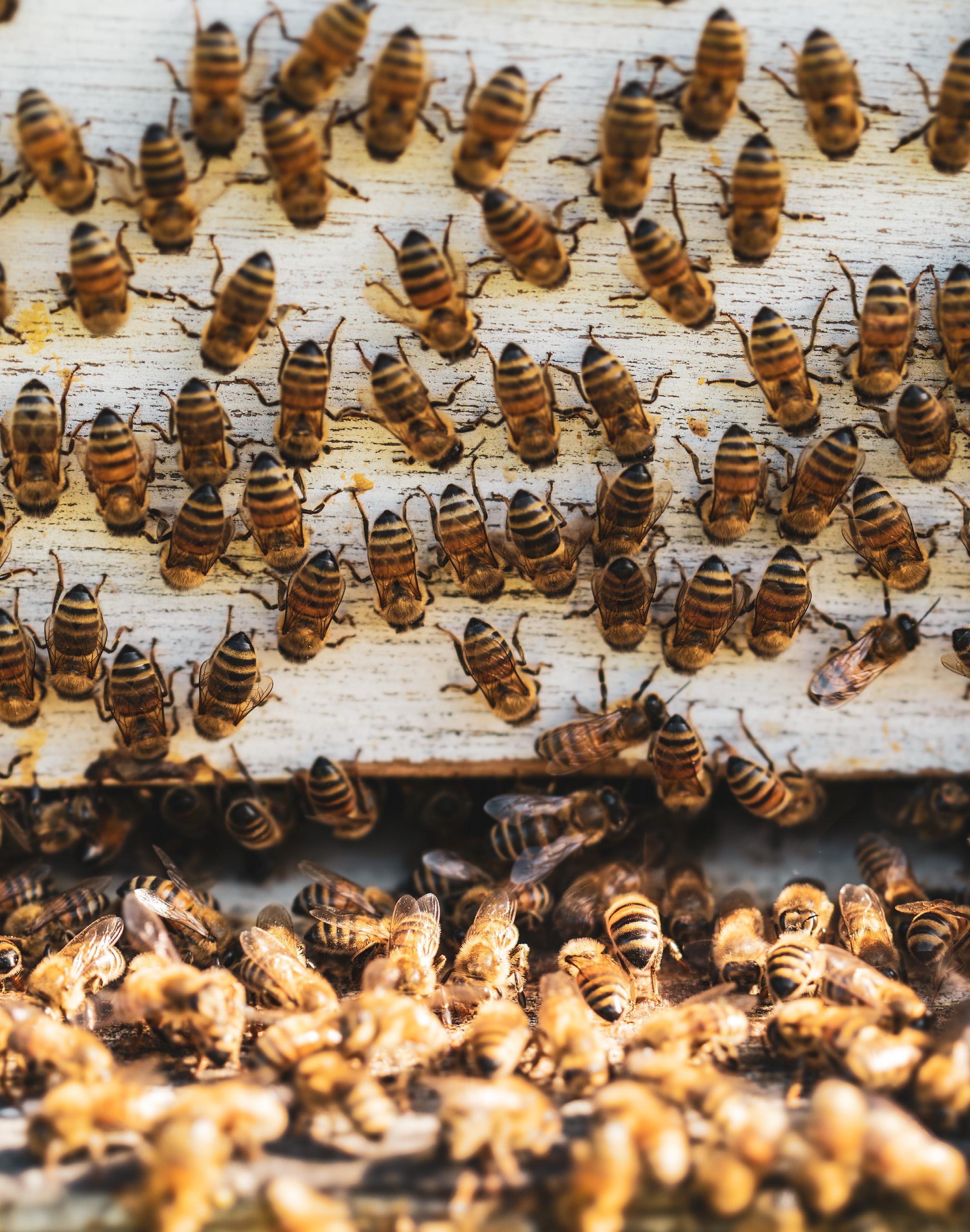
Formany people, honey is a staple in their hot tea or on their cornbread. Some may use it in cooking recipes or homemade medical remedies. However it is used, honey is a staple in many people’s lives and the sweet taste is one-of-a-kind. Although millions of people use honey and buy it from their local grocery store or honey stand, many have never experienced what it is like to keep a colony of bees and see the process it takes to get that sweet honey into bottles and sent out to consumers.
Mark Lashley is a keeper of over 200 colonies of bee’s while also spending his weekday’s as the Young Farmers Advisor and Agricultural teacher at Bainbridge High School. For Lashley, beekeeping is something he has done for years and is how he spends his free time and holidays.
“Obviously my teaching and students come first but when I’m not in the classroom I’m working with the bees,” said Lashley. “Whether it’s on the weekends or holidays, there is a lot of work that goes into keeping colonies.”
The process of gathering honey begins at the start of the year in January for Lashley. During the months of January and February Lashley feeds his bees sugar and syrup and in March, Lashley splits everything to grow into colonies.
The next step of the process occurs from April through June as the nectar begins to come in.
“In the beginning summer months you really want the bees to be at maximum population,” said Lashley. “That’s probably the most important time for beekeepers because there is a lot of maintenance involved and keeping the temperature right.”
For Lashley, one of the most important
keys to beekeeping is temperature regulation. Making sure things aren’t too hot or cold and keeping his cells from getting dry or overly humid take time, dedication and observation.
After the nectar is turned into honey, it is deposited and harvested into cells where it is coated with wax to help with temperature regulation.

“Once it is celled, we put a wax over it to keep the humidity from going into it and disturbing the process,” said Lashley. “Once everything is good on that end is when it starts turning into the product you see on the shelves.”
The next step is processing the honey into bottles or drums as it prepares to go out to consumers. For Lashley, he has two types of customers that he distributes honey to. The first is wholesale customers, like large-scale grocery stores.
“For wholesale customers they buy honey in a bulk of our 55 gallon drums and then from there they will pack it into bottles or make different flavors which is what you’ll see in stores like Wal-Mart.”
The second type of customers that Lashley has are locally owned and operated businesses like KGD produce.
“For local businesses like KGD we will just bottle and package it ourselves and deliver them to the businesses ourselves.”
Lashley is just one of many successful beekeepers who distribute honey that customers can find in their favorite local stores.
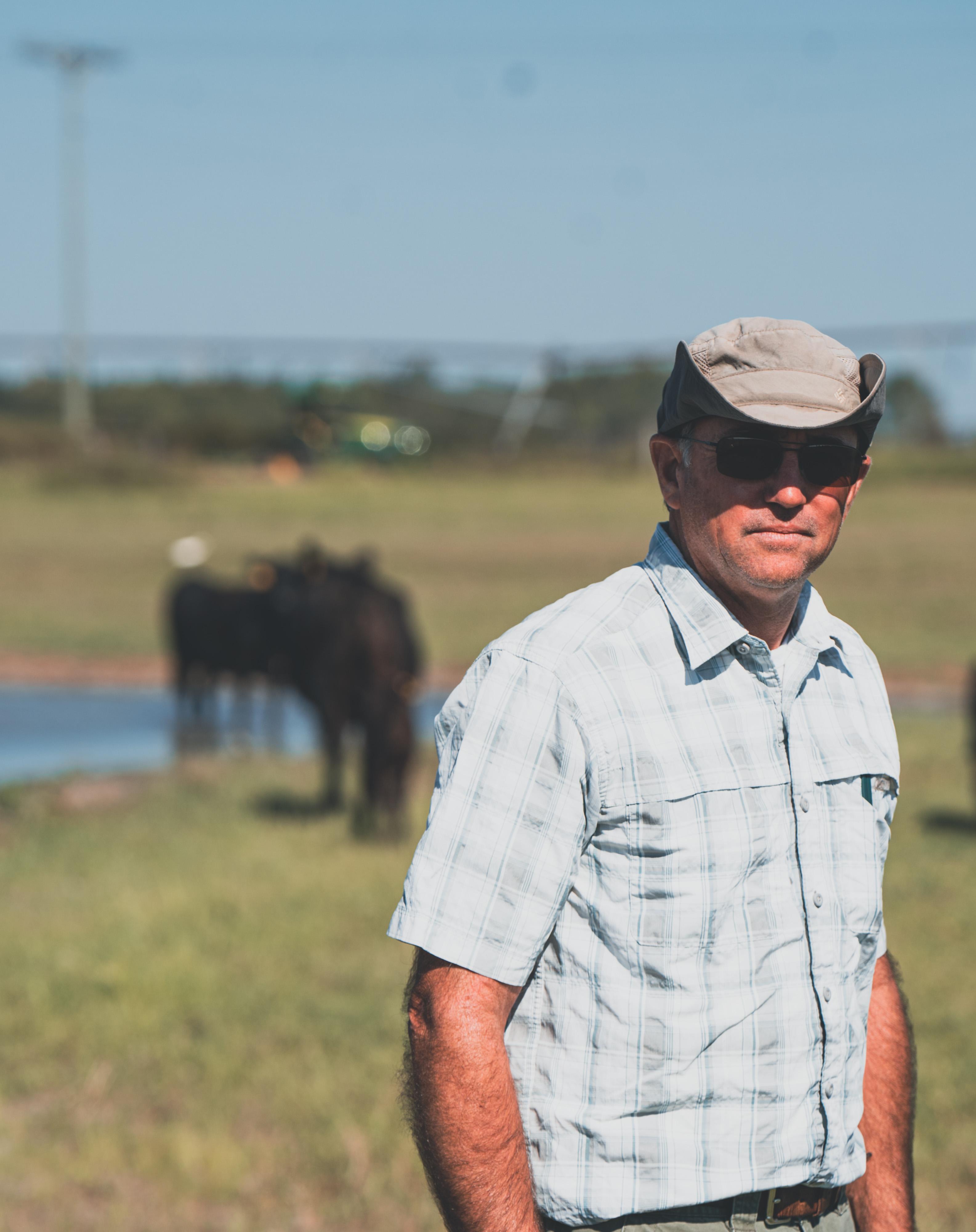
 By Kathryn Crockett
By Kathryn Crockett
Whenit comes to doing business, relationships are powerful, and that is especially true of Grady Ranch. Located just a short drive from Bainbridge, Grady Ranch is a fourth generation family farm on the outskirts of Whigham, a small Southwest Georgia town. Grady Ranch used to be a dairy, but on December 12th, 2012 (that’s right, 12-12-2012) the dairy milked their last cow and made the permanent switch to become grassfed beef producers. Over the last decade, they’ve learned a lot, and now practice natural and environmentally sustainable stewardship of the land in the hopes to be able to hand it down to future generations.
Bobby Holden is currently the man in charge, working closely alongside his son. While they were not new to agriculture, the path to carving out their own share of the market in their new segment was incremental. “We started our first Farmers Market, which was the Bainbridge market,” Holden said. “And then we got into the Tallahassee downtown farmer’s market. And once we got there, we met and got involved with online marketing
through Redhills Online. Tallahassee Farmers Market is our main retail market now.”
But smaller retail outlets and restaurants are still essential to Grady Ranch. KGD Produce, The American and Southern Philosophy Brewing all carry or serve his products locally. “We’re also looking at bringing on another species. A lot of our retail customers are starting to ask for Lamb, they can’t get it anywhere here,” Holden said. He hopes that the demand for lamb will only increase, “As we become a more diverse community here from integrating different ethnicities into our community, we hope to be able to cater to them also. I see that as an opportunity for growth in addition to concentrating on increasing retail sales.”
Holden is particularly proud of the fact that their product is different to conventional beef you might find in a grocery store. “The quality of the product that we’re delivering is something we take very seriously. Our motto has kind of always been that we want folks to eat our product because they like it, not just because its grass fed or considered healthier,” he said. “We try never
“Well you know farmers, we’re professional bellyachers. We’ll sit there and moan and groan about everything, but then also it’s a wonderful way of life.” —Holden



to compare our product to conventional. We don’t claim that it’s better in any way, because there’s a spot in the market for all of us. You’ll never hear us disparage traditional conventional production of beef, because unfortunately a large segment of population cannot afford the products we’re producing,” Holden said. But cost of their finished product reflects many factors, “The main reason ours is more expensive is we have a lot more time invested in each animal than conventional beef which can be ready for harvest in 18 months using grains.” Grady Ranch beef takes a minimum of 24 to 26 months from start to harvest, a significantly longer period of time.

Despite having to utilize wholesale outlets to keep inventory moving, the future is bright for Grady Ranch, and Holden has hopes of seeing retail sales straight
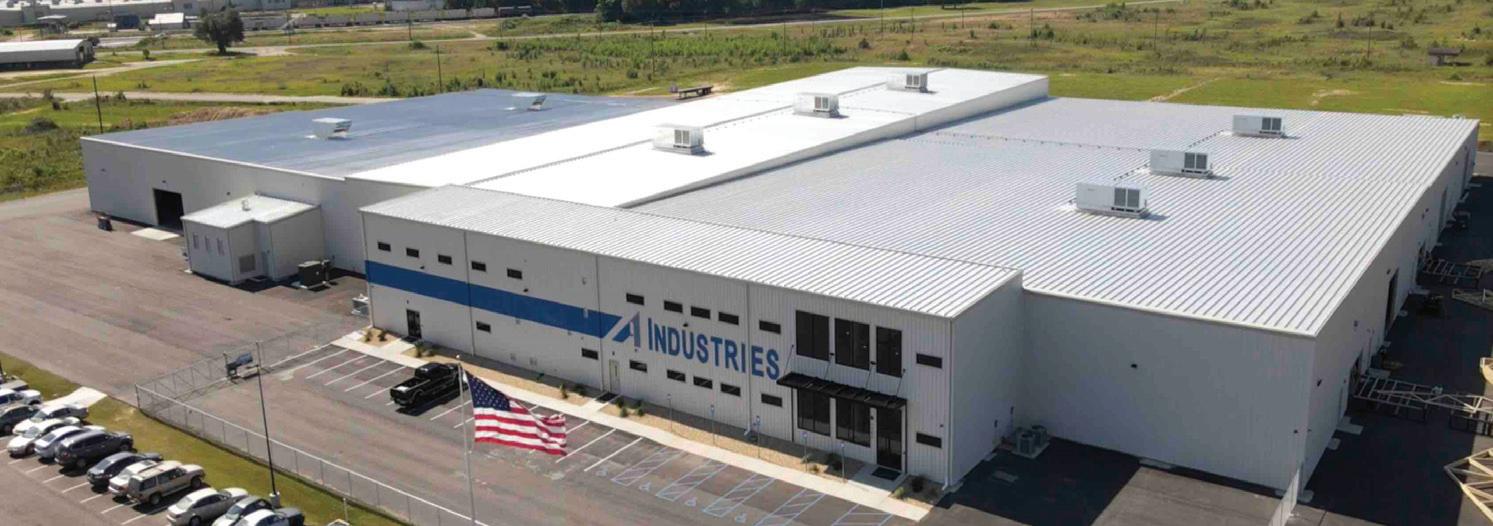


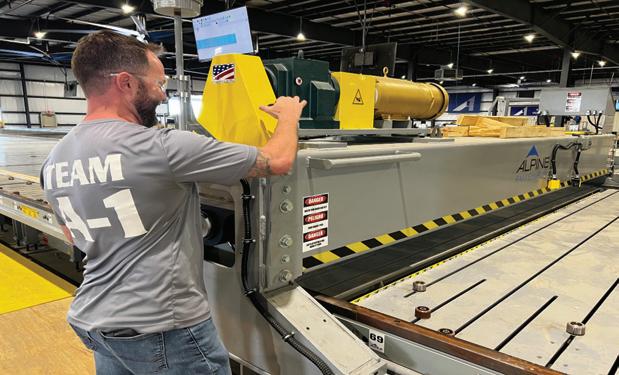
to the consumer increase. “I don’t know if we’ll ever get the volume of sales that we need to handle our volume reduction without selling to other retailers. But our business with restaurants and people like KGD produce help us in more ways than one. They’re certainly a marketing bonus for us, they help us get our label in front of more people,” Holden said. They do a wonderful job of presenting and preparing our products.”
When it comes to farming, its not for everyone. But Holden says it’s a way of life he hopes to be able to offer future generations of his family. “Well you know farmers, we’re professional bellyachers. We’ll sit there and moan and groan about everything, but then also it is a wonderful way of life. This has been a great place to raise kids and I can’t imagine wanting it any other way.”
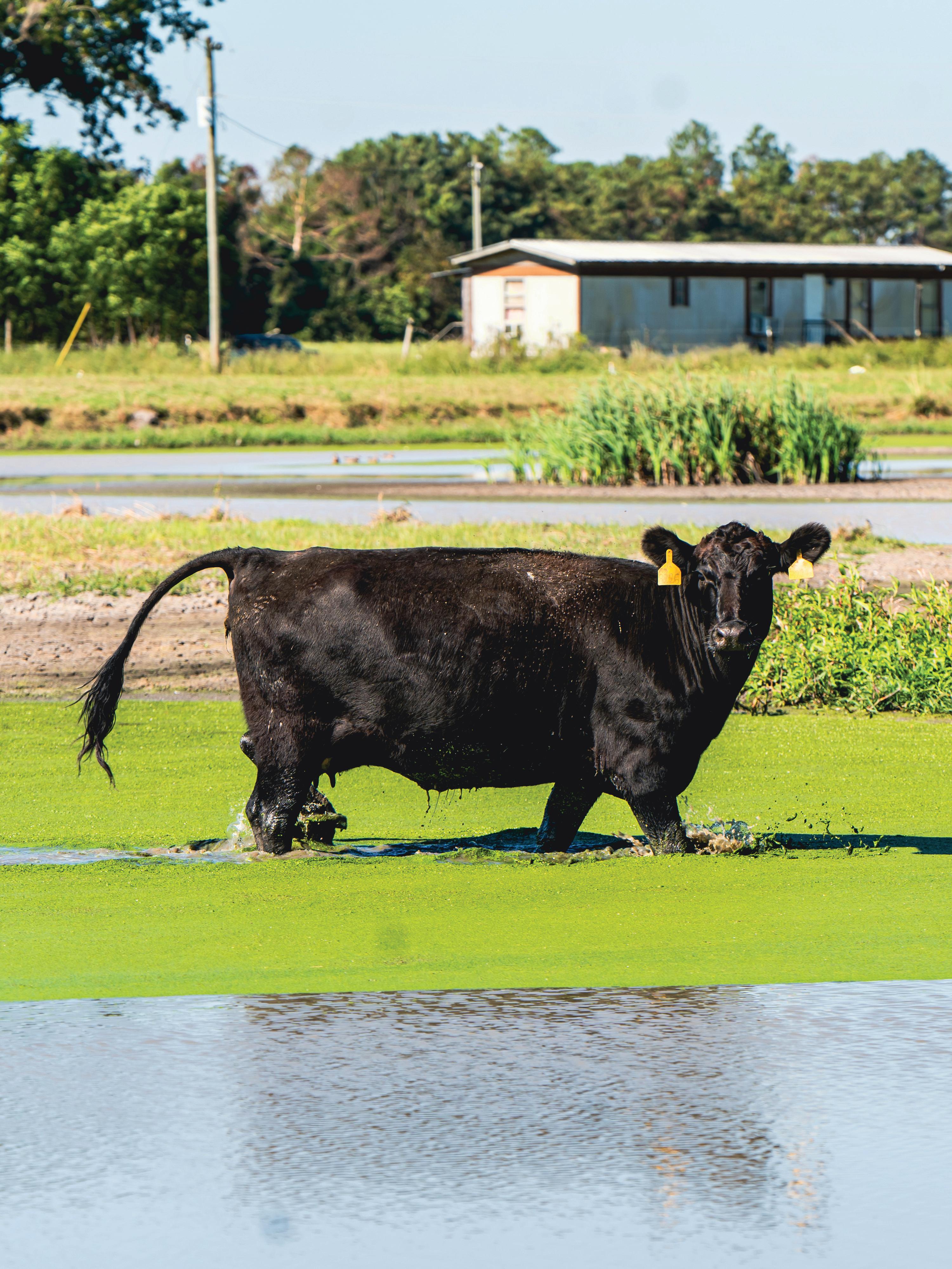
 GRADY RANCH ANGUS Kathryn Crockett - The Post-Searchlight
GRADY RANCH ANGUS Kathryn Crockett - The Post-Searchlight

Whilesome little girls have dreams of fairy tales, Millie Holt, owner of Millie’s Mercantile and Trading Co. had her eyes set on a more headstrong goal. “I have always had an entrepreneurial personality,” Holt told The Post-Searchlight, “And loved the idea of being my own boss one day,” she said. So, when she had the opportunity to work for a supportive and inspiring woman at Bristol Reese Boutique in Bainbridge, this became what Holt describes as “the beginning of a new life for me.”
Holt quickly realized that she loved the retail business and became especially passionate about fostering relationships with her regular clients in order to help them “feel confident when shopping.”
After two years learning the ropes of retail business management from Bristol Reese’s owner, Breanna, an unexpected door opened for Holt to step into the opportunity of her dreams. And the rest, as they say, is history.
While she never thought owning her own store would be a reality before she graduated from college, Holt is quick to recognize the role her mentor played in inadvertently equipping her with the tools of success. “I am so thankful for everything I learned from Breanna, I certainly would not own a store today without her,” Holt said.
As many local businesses try to do, Holt
has been on the hunt for local producers, craftspeople and artisans to supply her store with local offerings. “When shopping for products, I like to look closely at every aspect of the brand. Stocking local products to me feels amazing. I love being able to support “shop small & shop local” when buying items for the store. It gives the item so much emotional value,” she said.
Holt is clear that her choices as a business owner are informed by her own consumer behavior, “As a shopper myself, I am much more likely to purchase a local or small business item rather than one made across the world. Local items come with a story and a small business owner’s dream. Carrying local items at Millie’s Mercantile is a passion of mine.”
Recently, Holt connected with a family-owned regenerative farm, White Oak Pastures, in Bluffton, Ga. which is located less than an hour drive time from Bainbridge. Holt was attracted to them because of their handmade leather goods and specialty pet products. After visiting their zerowaste workshop, which is open to the public, Holt quickly agreed to carry their products in store.
The unexpected success of White Oak’s pet treats and accessory line has been eye opening to Holt. “The pet section continues to grow grow grow. I knew I wanted a pet section because I love spoiling my
pets and for small businesses I think it also helps to have a large variety of items as well as price points in my pet section. The local pet items is a huge head turning aspect,” Holt said.
“We carry leather leashes, collars, treats, and much more from their zero-waste workshop. We also have a pet wall, where any time someone shops our pet section, we ask them to send us a picture of their pet loving their latest purchase. We then get it printed and put on our pet wall; everyone loves it!”

But what is zero-waste, and how has one small farm made a booming business of it? Walker Homes, White Oak Pasture’s Makerspace Manager filled The Post-Searchlight in. “The Zero Waste workshop is an
opportunity for White Oak Pastures to turn “trash into treasure”. This facility was not only created so we could reduce the number of materials going to compost that don’t necessarily break down, but also to allow us to be better stewards of the materials gained from each slaughter.” According to Holmes, White Oak Pastures’ has been in the cattle business for six generations, but the focus on this waste-not-want-not mindset is more of a “radical return to tradition” than an innovation, although plenty of innovative ideas do exist in the pet department.
“Oftentimes you’ll see more industrialized farms sell their animal hides for next to nothing to be tanned and processed overseas,” Holmes said, “Instead of passing our
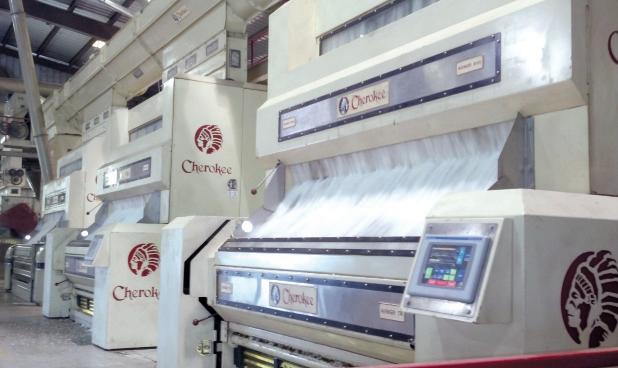
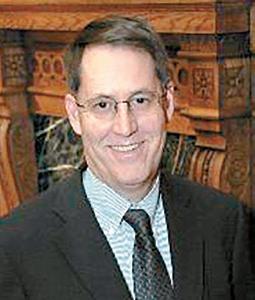
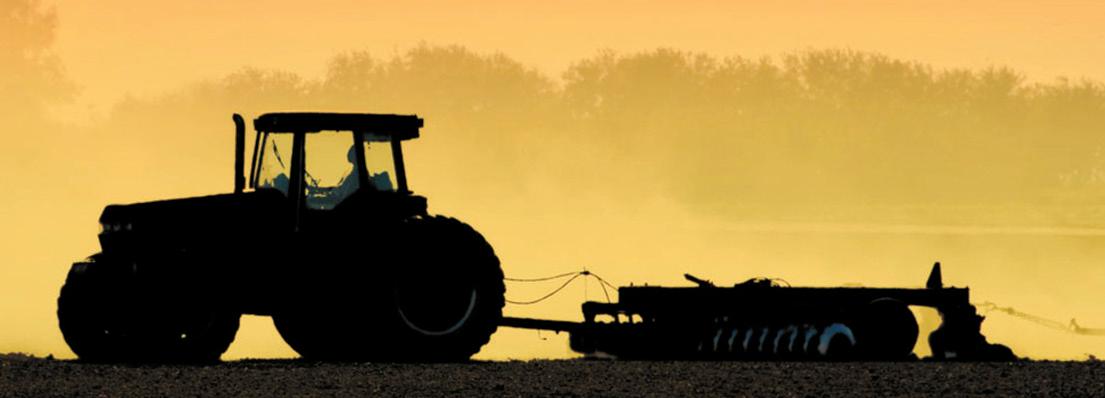
waste along, we chose to embrace the waste. Because of this, we have had the opportunity to grow White Oak by three departments, provide additional jobs for the local economy, produce quality value-added products for consumers, and ultimately, give purpose to the animal byproducts that would otherwise be unused.”
Even though selling these locally made products has been a win for Holt, Holmes felt the partnership was equally as rewarding for the workshop. “Our relationship with Millie’s Mercantile Co. has been quite pleasant. Millie is a strong collaborator with a keen eye for style and design. We are so appreciative to her for taking a chance on us. We know she takes a lot of pride in the
brands she adds to her shop shelves, not to mention that she is one of the most personable and kind folks around!” Holmes said.
Being a smaller producer has many challenges, “It is incredibly difficult to compete with large scale, high-volume companies,” Holmes continued, “For example, you can find some derivative of a pet chew in almost any grocery store these days. Although these are readily available and convenient, when you really dig into their production process and ingredients, you may find they bleach the chews to make them appear clean, they contain very little cowhide, and they may be full of preservatives that can interfere with your pet’s digestive system.” Having an opportunity to educate the public through small, local retailers is
essential for small scale producers, and many businesses are often looking to add more local product lines to their inventory.
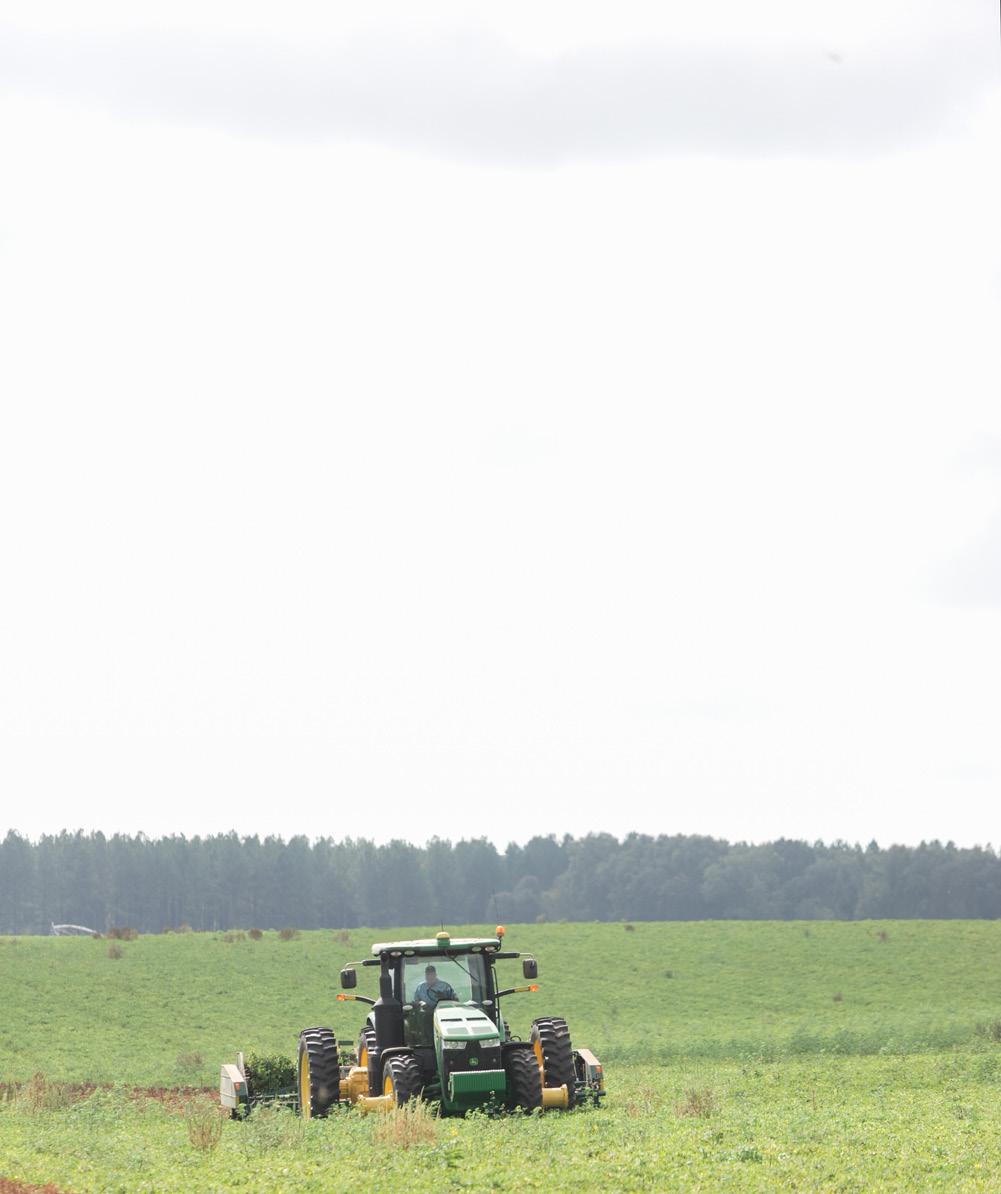
“I am always looking for more local makers to add to my store,” Holt said. “I love it when producers and makers reach out unexpectedly to introduce themselves and show me what they make.
Holt shared that the story and overall identity of a product is almost as important as the product itself. “I look for the why, how, and who. Why did they create this product. How is it used. Who created this and who is the target customer audience for this specific item.” And as it turns out, that is equally as important to White Oak as it is to Millie’s Mercantile.
“Simply put, most of our Ze-
ro-Waste products were synthesized by getting our hands dirty and putting one foot in front of the other. Our products come with a story, from how the animals were raised to what all went into making the final product, and oftentimes that story can get lost if someone is simply looking for a leather bag, pet chew, or bar of soap,” Holmes said.
Being willing to roll up your sleeves and get to work is a common sentiment from both sides of the equation, and its seems whether your hands are literally or figuratively getting dirty these kinds of collaborations could form the backbone of economic resiliency throughout the South.
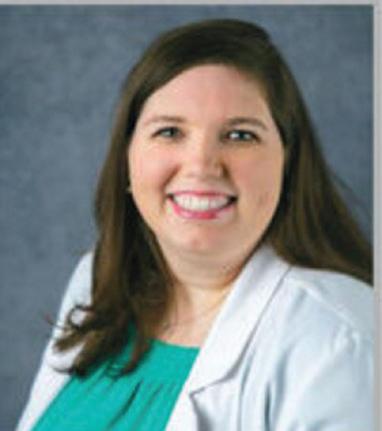
We are proud to be a membership organization. Together, we can grow our future!

$500 Ford Bonus Cash
Choice
Hotels
Farm Bureau Bank

Car Rental Program
Agelity
